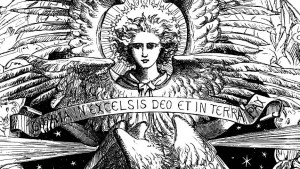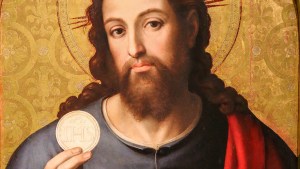Many Catholics who attend Eucharistic adoration are familiar with praying the Divine Praises. This litany of praise normally concludes a time of adoration, giving glory to God present in the Holy Eucharist.
The prayer can be traced back to the 18th century and was composed by Italian Jesuit Luigi Felici, for the purpose of making reparations against blasphemy and profanity against God.
It is a prayer that falls into the category of praise, which is best described by the Catechism of the Catholic Church:
Praise is the form of prayer which recognizes most immediately that God is God. It lauds God for his own sake and gives him glory, quite beyond what he does, but simply because HE IS. It shares in the blessed happiness of the pure of heart who love God in faith before seeing him in glory.
CCC 2639
Many have prayed the Divine Praises for their personal prayer and find it to be a beautiful prayer of praise, resting in God’s divine presence.
Blessed be God.
Blessed be His Holy Name.
Blessed be Jesus Christ, true God and true Man.
Blessed be the Name of Jesus.
Blessed be His Most Sacred Heart.
Blessed be His Most Precious Blood.
Blessed be Jesus in the Most Holy Sacrament of the Altar.
Blessed be the Holy Ghost, the Paraclete.
Blessed be the great Mother of God, Mary most Holy.
Blessed be her Holy and Immaculate Conception.
Blessed be her Glorious Assumption.
Blessed be the name of Mary, Virgin and Mother.
Blessed be St. Joseph, her most chaste spouse.
Blessed be God in His Angels and in His Saints.
Amen.



